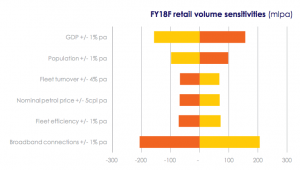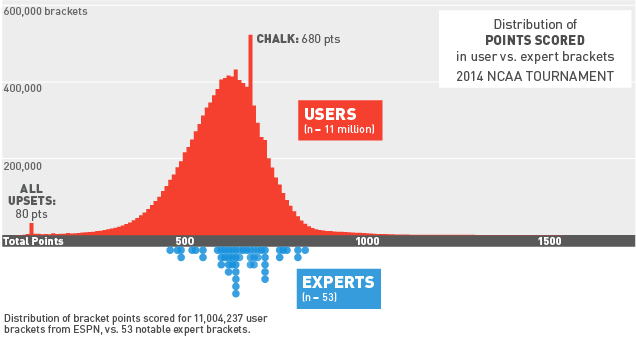Peak car?
From the Herald, quoting the chief executive of Z Energy:
“People are doing online shopping and Skyping granny rather than making the fortnightly visit.”
A 1 per cent improvement in broadband connectivity is estimated to cause a drop of 200 million litres a year in national fuel demand, more than the impact of GDP growth, population, fleet turnover, vehicle efficiency and the petrol price.
The first question here is on units. For broadband, it’s fuel demand per 1% of connections, but what are the units for the others?
There’s a bit more detail in this set of slides, including this picture, where the orange bar shows the estimated effect of an increase in the factor and the yellow bar shows the estimated effect of the same decrease.

So if we believe these numbers, a 1% point increase in broadband has slightly larger impact than a 1% increase in GDP and about twice the impact of a 1% increase in population.
For this model to be useful in prediction, which is what Z Energy presumably made it for, there’s no need that these statistical associations are causal. It’s only necessary that they persist at roughly the same strength through the period of the forecast. The associations can’t really be true under serious extrapolation. For example, reducing broadband coverage from the current roughly 80% of households to zero would probably not cause transport fuel use to rise by 16 billion litres — ie, more than triple. Similarly, it can’t really be true that the impact nominal petrol prices is independent of inflation or income trends. For prediction this doesn’t necessarily matter, but for interpreting causes it does.
The actual prediction impact of broadband depends on how much it will increase. It turns out that the model says the reduction due to broadband plus the reduction due to increasing petrol prices approximately cancels out the increase due to increasing GDP. So, in fact, in the Z Energy model, broadband is less important than GDP growth. The model ends up predicting that per-capita travel will be roughly constant, that total travel will increase with population, and that fuel efficiency will increase.
So, is the broadband association causal? It easily could be. There’s evidence from other countries of a reduction in driving that can’t entirely be attributed to the Great Recession. This is especially true among young people, with more socialising electronically. Telecommuting probably plays a role, too. I’m not convinced that online shopping has had a big impact on car trips in NZ, but it could have. On the other hand, there huge uncertainty in the size of the effect — not just statistical uncertainty based on the data, but uncertainty about what’s fundamentally going on.
Finally, one depressing, but probably accurate, feature of the predictions is that they assume we still won’t be doing anything about climate change by 2018.

